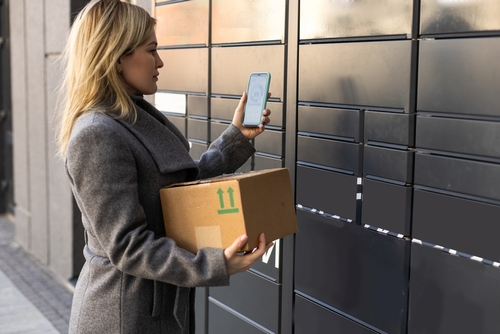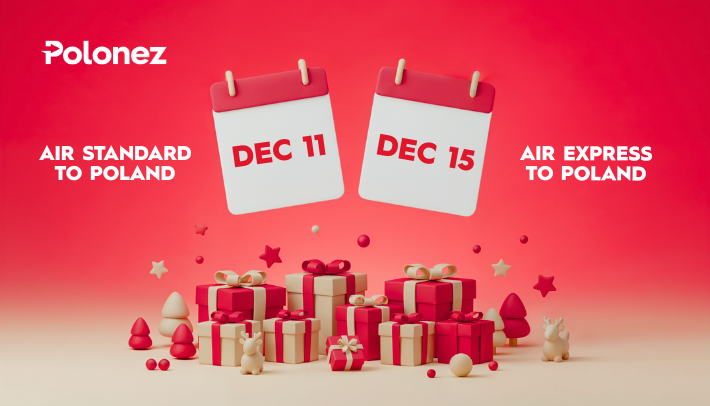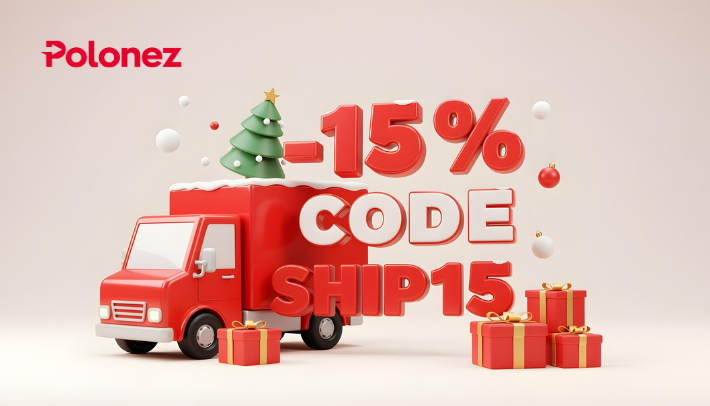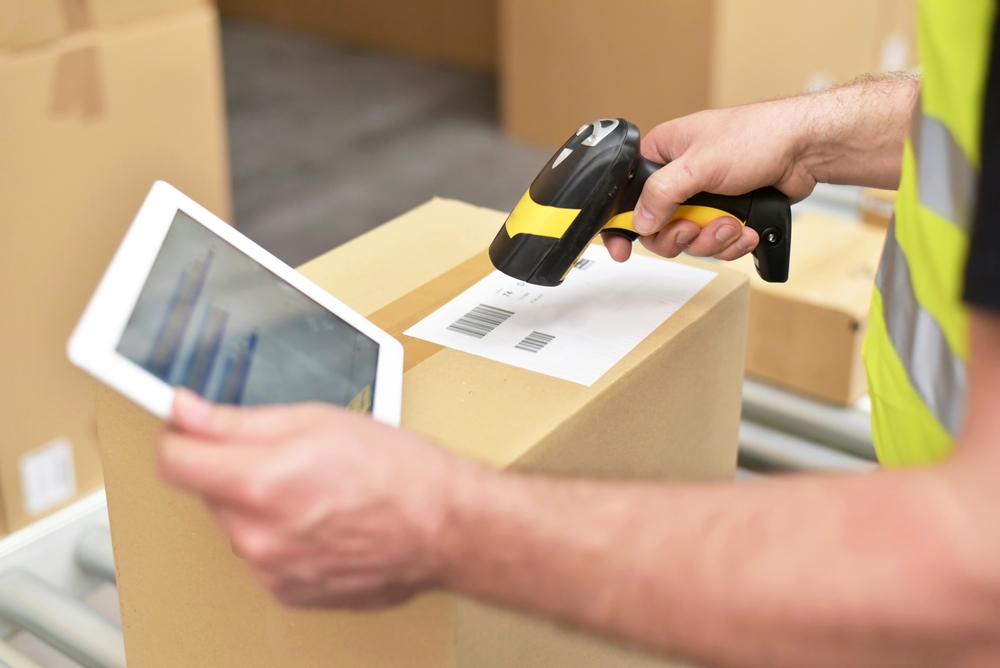Jun 2, 2025
Send a Parcel to Poland in Today’s Interconnected World

It's easier than you think to send a parcel to Poland in today's interconnected world. It shouldn't be a complex venture. Poland, with its vibrant economy and population, as well as its strategic position as a gateway to the wider European Union market, has become a destination for U.S. travelers and exporters.
Over recent years, the world has seen an increase in trade between the two nations, with everything from fuels to cutting-edge machinery making its way across the Atlantic. But the important aspects of international shipping to this dynamic region shouldn’t be ignored. The ins and outs of air and ocean freight, customs procedures, what major carriers offer, and the rise of e-commerce and personalized delivery options can feel overwhelming.
While ocean shipping is budget-friendly for large consignments, air freight offers speed for urgent and high-value items. Polish ports like Gdansk and Gdynia, along with Warsaw Chopin Airport, are have been expanding their capabilities, making Poland an efficient entry point into Europe.
The journey isn't without its bumps, which include port congestion and fluctuating rates. With the right approach, you can navigate these challenges.
Sending a Parcel to Poland: Ocean Versus Air Freight
When residents and businesses are shipping goods over 5,000 miles from the United States to Poland, the send-parcel-to-Poland options in your toolbox are basically ocean freight and air freight. Each has its distinct advantages, with the best option depending on what you're shipping and how quickly it needs to arrive.
Ocean freight is the most economical solution, especially for large, heavy, or bulky shipments. However, it's a slower journey, usually taking anywhere from 15 - 35 days. Journeys by sea are perfect for items that aren't time-sensitive.
In contrast, air freight offers quicker delivery, often getting parcels to Poland in just 2 - 5 business days. It's the go-to for smaller, more valuable, or urgent consignments, particularly those under 2 cubic meters or 300 kilograms.
The cost difference is notable: sea freight might range from $50 to $500 per cubic meter, while air freight typically falls between $2.50 and $7 per kilogram. A shipment that costs $195 by sea could easily be $1,000 by air.
This trade-off between cost, speed, and the nature of your cargo is a personal decision, impacting everything from inventory planning to the overall cost of your goods. For individuals sending personal items, consider the shipping value and your sense of urgency.
“All items containing goods must include the corresponding 6-digit harmonized system code for each article listed on the customs declaration form,” states the U.S. Postal Service’s Postal Explorer country conditions for mailing.
We’ll stop right there. It’s just one of several international mailing rules and requirements that the right experts can take care of on your behalf.
Understanding the European Union Customs Union
Because Poland is a member of the European Union (EU), it operates under the umbrella of the EU Customs Union and multiple incoming Polish mail regulations. This means that once your personal or commercial goods successfully clear customs in Poland or any other European Union country, they can move freely throughout the rest of the EU without facing additional customs duties.
This is a huge advantage, making your initial entry point into the European Union a strategic decision for broader European distribution. The EU's Union Customs Code (UCC) is designed to modernize and simplify customs procedures across the entire bloc when it comes to declarations and other paperwork.
Every item imported into the EU must be declared using the Single Administrative Document. While these harmonized rules simplify internal movement, they also place immense importance on the accuracy of your initial customs declaration in Poland. Even minor errors in valuation, classification codes, or country-of-origin details can have ripple effects across the entire EU, leading to issues in other member states.
If you're a business outside the European Union and you're lodging a customs declaration, you'll need an Economic Operator Registration and Identification number. This unique identifier links your business to all its customs activities throughout the EU, helping authorities track and manage trade more effectively. Polish customs authorities will also require this number if it has been assigned.
For a basic understanding, the European Commission's customs clearance documents and procedures page is a good starting point. It's your handbook for navigating EU import regulations, helping you avoid delays and ensure smooth entry for your products.
Customs and Clearance as You Send Your Parcel to Poland
Getting your goods through customs requires attention to detail and a stack of important documents. For businesses, paperwork typically includes a commercial invoice, a packing list, and either a Bill of Lading (for sea freight) or an Air Waybill (for air freight).
If you're claiming special tariff treatment, a Certificate of Origin is also important. For higher-value goods usually costing over 20,000 euros, a Customs Value Declaration might be necessary.
Once your shipment arrives, Polish customs officials will review your documents and may even inspect the goods. They do this to make sure everything matches your declarations, determine applicable Value Added Taxes (VAT) and duties, and confirm if the items are for commercial trade or personal use. Any inconsistencies between your paperwork and the contents can cause significant delays, more inspections, or even lead to your consignment being held or seized.
For personal shipments, clearance can sometimes be completed within hours, usually no more than two business days, though this adds to the courier's overall delivery time. Commercial shipments can take longer, depending on their complexity and volume.
It's important to check with your recipient in Poland beforehand if any special import permits are required for specific goods. Poland maintains an import list detailing items needing licenses, along with any relevant restrictions and issuing agencies. Proactive communication with your Polish consignee about these permits is the key for an easier clearance process.
Carrier-Specific Rules, Prohibitions, and Restrictions
When shipping internationally from your home or your work operations, know that “restricted” doesn't always mean something is forbidden. It can mean an item can be shipped, but only if you meet specific conditions, obtain permits, or follow special packaging rules, sometimes even requiring a special contract with the carrier.
The volume and overlapping nature of these lists highlight a major compliance challenge, in particular for businesses with diverse product lines or those new to international shipping. This is where the expertise of freight forwarders or logistics partners, who stay updated on ever-changing regulations, becomes invaluable.
Here’s a quick overview of common restrictions for major carriers when shipping to Poland:
-
U.S. Postal Service (USPS): Beyond general Polish prohibitions, USPS specifically restricts coins, banknotes, jewelry, and watches in Priority Mail Express International. Always confirm import permits with your addressee.
-
FedEx: FedEx adheres to a comprehensive global list. This includes items like high-value artwork (over $20,000 without approval), certain flammables, auto parts with fluids, fine jewelry, furs, bullion, weapons, cash, and various hazardous materials. Restricted items, which are potentially shippable with approval, include lithium batteries, medical devices, pharmaceuticals, and retail tobacco. Dangerous goods must comply with regulations.
-
UPS: UPS prohibits items like common fireworks, hazardous waste, ivory, and marijuana. Restricted items that are shippable under contract include alcoholic beverages, certain animal products, high-value articles, ammunition, biological substances (Category B), dangerous goods, firearms, furs, precious metals, live animals, perishables, plants, seeds, and tobacco.
-
DHL: Globally speaking, DHL prohibits original firearms, ammunition, explosives, live animals, cash, and illegal/counterfeit substances. DHL Poland specifically refuses cash, securities, valuables (jewelry and art), weapons, pyrotechnics, or easily spoiled items. Restricted items like dry ice, alcoholic beverages, and perfumes may be shippable under specific conditions.
Send Parcel to Poland: Personal vs. Commercial Shipments
Whether you're relocating and sending personal belongings or expanding your business by shipping commercial goods, understanding today’s parcel-to-Poland nuances is crucial. As Poland is part of the European Union, all shipments must adhere to EU customs regulations.
For individuals shipping personal effects, such as household goods when moving, there are usually specific customs relief provisions that can help reduce duties and taxes. However, taking advantage of these requires meticulous documentation to prove you're genuinely transferring your residence.
This might involve providing proof of your previous address, your new address in Poland, and a detailed inventory of your belongings:
|
Category |
Personal Shipping |
Commercial Shipping |
Common to Both |
|
Purpose |
Gifts, personal belongings, relocation items |
Sale of goods, business transactions |
General import/export |
|
Key Documentation |
Detailed inventory, passport/visa, proof of residence, signed declaration of ownership |
Commercial Invoice, Packing List, Bill of Lading/Air Waybill, Certificate of Origin (if applicable) |
Customs Declaration Form, Shipping Label |
|
Customs Duties and Taxes |
Generally exempt for used personal effects (with conditions); otherwise, applicable duties/VAT |
Always subject to duties and VAT (unless specific trade agreements apply) |
Calculated on CIF value; payable by recipient by default (can be prepaid by sender) |
|
VAT (Value Added Tax) |
Applicable unless specific exemptions for used personal effects apply |
Always applicable, typically 23 percent (subject to change) |
Calculated on customs value + duties + shipping/insurance |
|
HS Codes |
Recommended for accurate description (such as a men's cotton t-shirt) |
Mandatory for proper classification and duty assessment |
Helps customs classify items accurately |
|
Prohibited/Restricted Items |
Firearms, drugs, certain food/animal products, pornography, plants without certificates |
Same as personal, plus specific industry regulations (pharmaceuticals, chemicals) |
Always check with courier and Polish customs before shipping |
|
Quantity Limits |
Personal consumption limits (alcohol, tobacco, food, medicines) |
Based on commercial agreements and import licenses |
Applies to certain controlled goods |
|
Major Couriers |
USPS, FedEx, UPS, DHL |
FedEx, UPS, DHL, Freight Forwarders (for larger shipments) |
All listed couriers offer services for various package sizes |
|
Transit Times |
Varies by service (USPS: 6-10 days, Express: 3-5 days; Private Couriers: 2-7 days) |
Varies by service and mode (Air: 2-7 days; Sea: 4-6 weeks) |
Depends on chosen service and mode of transport |
|
Customs Clearance |
Can be simpler for low-value gifts/personal effects |
Often requires customs broker for complex/high-value shipments |
Necessary for all non-document shipments |
For businesses, particularly small and medium-sized enterprises, navigating the complexities of international logistics and customs compliance can be daunting. That’s why partnering with experienced European freight forwarders and customs brokers provides significant advantages.
These experts can help with everything from optimizing shipping routes to making sure all documentation is aligned with EU and Polish regulations. Ultimately, successful shipping from the United States to Poland, whether for personal or commercial reasons, hinges on careful planning, accurate paperwork, a clear grasp of carrier capabilities, and adaptability to the ever-evolving global trade landscape.
Poland’s Recent Ascent to an E-Commerce Hotspot
This area of Europe is rapidly becoming one of the broader region’s most active e-commerce markets, ranking No. 17 in global marketplace size. With a population exceeding 40 million and an economy that's steadily growing, this nation has offered a unique opportunity for global retailers looking to expand their reach and tap into a new customer base.
Polish consumers have embraced online shopping, with nearly half of them making online purchases at least once a week. This digital adoption, coupled with a keen interest in international brands, makes Poland an ideal market for cross-border e-commerce.
Online marketplaces are particularly dominant here. In 2024, about 86 percent of Polish shoppers made purchases through platforms like Allegro, Amazon, and eBay. For international merchants, leveraging these established marketplaces can be a strategy to gain visibility and establish a presence in this high-potential market.
Consumer surveys show that Polish shoppers are enthusiastic about buying from abroad, purchasing fashion, cosmetics, personal care products, health essentials, books, movies, music, and games. This willingness to buy internationally creates exciting new revenue streams for global retailers.
Furthermore, social commerce is poised for significant growth in Poland, expected to nearly double in size between 2024 and 2028. Retailers who integrate social shopping experiences into their strategies are forecasted to gain a competitive edge.
Ultimately, success in e-commerce isn't just about making sales. It's about providing reliable, fast, and flexible delivery solutions that meet the evolving expectations of Polish consumers.
“Today, 77 percent of Polish Internet users already buy products online, according to Gemius’ e-commerce in 2022 report,” states the U.S. Commerce Department's International Trade Administration. “By 2026, e-commerce is expected to account for 20 percent of all retail sales in Poland.”
Polonez America
Polonez America specializes in international shipments from the United States to Poland and 160 countries worldwide, customizing your shipping needs. We offer parcel shipment via ocean or air, vehicle shipment, commercial LCL (Less than Container Load) and FCL (Full Container Load) shipping.
Our comprehensive range of services means customers can initiate package or commercial shipments from any of Polonez's authorized shipping outlets within the United States, which are then transported to our headquarters for sorting. Customers can send packages from authorized shipping outlets in the United States or by sending them via UPS, FedEx, or U.S. Postal Service to Polonez America's headquarters in Port Reading, NJ.
Polonez America is your expert in the resettlement process, collaborating with European partners for parcel services, customs, and delivery within Poland and other countries. We earn client trust through integrity and professionalism by delivering the highest quality service at the most competitive price.
Recommended to you

News
Dec 2, 2025
Don’t Miss Christmas Delivery!
CHRISTMAS IS JUST AROUND THE CORNER. There’s still time to send your holiday parcels to Poland — but the shipping deadlines are approaching quickly!

News
Dec 1, 2025
15% OFF Online Shipments
December Holiday Promo

News
Nov 24, 2025
How the Middle Warehouse Ensures Quick Delivery to Poland
U.S. online shops are reaching more buyers in Europe every year thanks to quick delivery to Poland and other countries.




